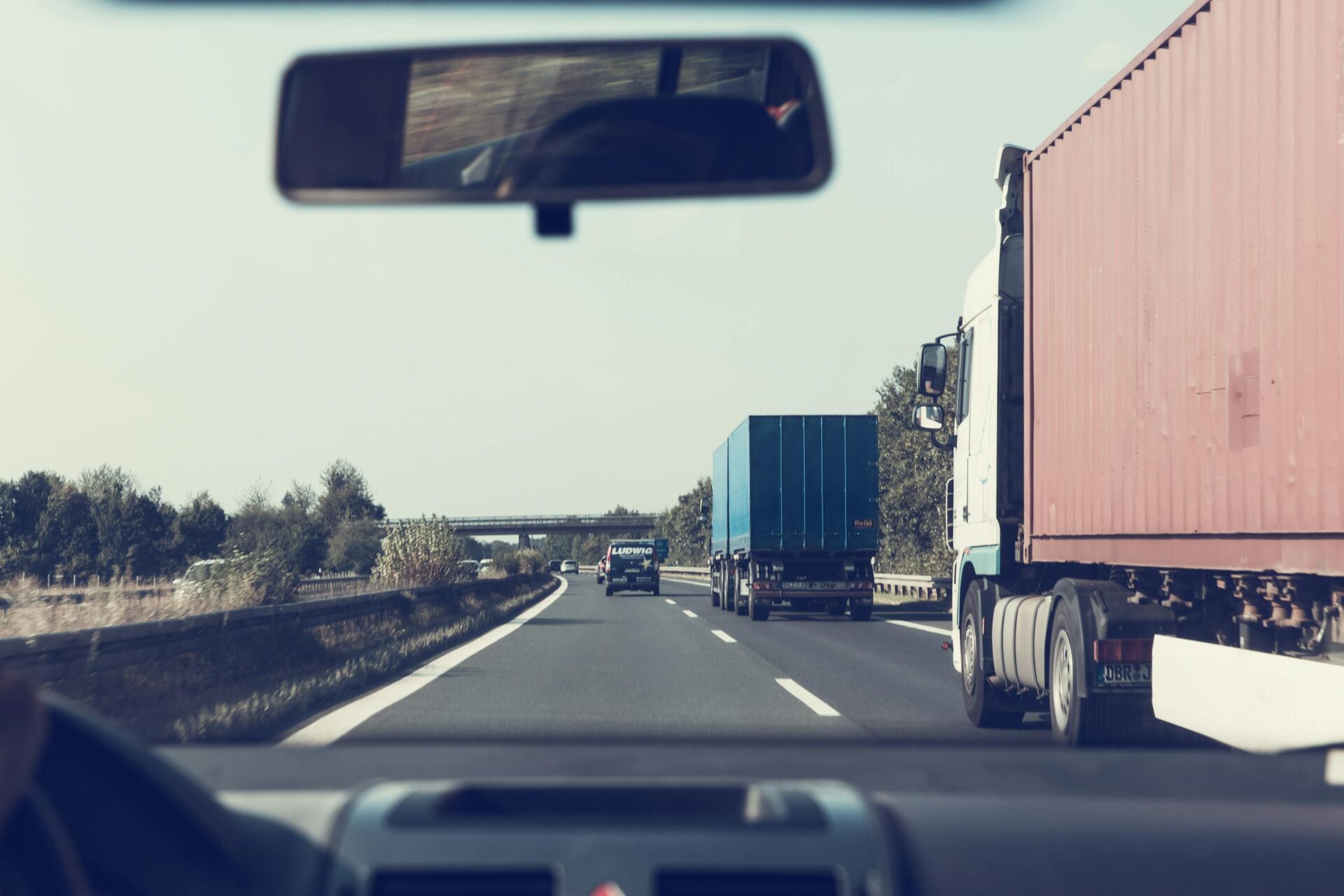How Much Can You Get In An 18-Wheeler Accident In Maryland?

Collisions involving 18-wheelers on Maryland roads can be devastating. They often result in severe injuries and significant property damage. So, understanding the potential compensation available for victims is critical for recovery and financial stability.
This article explores the factors influencing settlement amounts, types of damages available, and unique aspects of truck accident claims in Maryland.
Factors Affecting Compensation in 18-Wheeler Accidents in Maryland
Several key factors contribute to the overall value of a claim in 18-wheeler accidents:
- Severity of Injuries: More severe injuries typically result in higher medical costs, extended recovery periods, and a significant impact on the victim’s quality of life, leading to higher compensation.
- Property Damage: 18-wheeler accidents often result in total loss of the smaller vehicle, contributing to the claim value.
- Lost Wages and Earning Capacity: Victims may be unable to work for a long time or suffer permanent disability, affecting their current and future earning capacity.
- Pain and Suffering: Non-economic damages play a substantial role in truck accident compensation, though they can be challenging to quantify.
- Liability and Fault Determination: Maryland follows a contributory negligence rule, which can dramatically affect compensation. If the court finds the victim to be even slightly at fault, they may be barred from recovering damages.
Understanding these factors is key for anyone involved in an 18-wheeler accident in Maryland. They influence the potential compensation and underscore the importance of having the aid of experienced legal guidance in navigating these complex cases.
Types of Damages Available in Maryland
In Maryland, victims of 18-wheeler accidents may be eligible for various types of damages:
Economic Damages
Economic damages are quantifiable financial losses resulting from the accident, including:
- Medical expenses
- Lost wages
- Loss of earning capacity
- Property damage
- Out-of-pocket expenses
These damages are based on actual expenses and documented financial losses. So, they are generally straightforward to calculate.
Non-Economic Damages
Non-economic damages compensate for intangible losses, such as:
- Pain and suffering
- Emotional distress
- Loss of enjoyment of life
- Loss of consortium
While more challenging to quantify, non-economic damages often form a significant portion of truck accident settlements. Maryland imposes a cap on non-economic damages, which adjusts annually for inflation. As of October 1, 2023, the cap is $920,000 for wrongful death cases and $1,380,000 for wrongful death cases with two or more beneficiaries.
Punitive Damages
The court rarely awards punitive damages in cases involving extreme negligence or intentional misconduct because Maryland sets a high bar for punitive damages. The state requires clear and convincing evidence of actual malice. “Actual malice” is legally defined as conduct “characterized by evil or wrongful motive, intent to injure, knowing and deliberate wrongdoing, ill-will or fraud.”
Punitive damages are extremely rare in truck accident cases and are not typically a factor in most 18-wheeler accident claims.
Brief Overview of Settlement Ranges
While every 18-wheeler accident case is unique, typical settlement ranges can serve as a guide for the amount of remuneration for damages victims can expect to receive. However, keep in mind that these are estimates, and actual settlements can vary dramatically based on individual circumstances:
- Minor Injury Cases: Often range from $10,000 to $50,000
- Moderate Injury Cases: Typically range from $50,000 to $250,000
- Severe Injury Cases: Generally start at $250,000 and can go into the millions
- Catastrophic Injury or Wrongful Death Cases: Can range from several million to tens of millions in extreme cases
Again, these ranges are not guaranteed as the court needs to examine many things before it can arrive at a settlement amount.
Factors that can push settlements toward the higher end include clear liability, violations of federal trucking regulations, permanent disability or disfigurement, significant loss of earning capacity, and the young age of the victim in wrongful death cases.
In addition, the actual settlement in any given case also depends on numerous considerations, including the strength of the evidence, the skill of legal representation, and the specific circumstances of the accident and resulting injuries.
Unique Aspects of 18-Wheeler Accident Claims in Maryland
There are distinct challenges that set apart 18-wheeler accident claims in Maryland from typical vehicle collision cases. These challenges include:
Commercial Insurance Policies and Higher Coverage Limits
Trucking companies typically carry commercial insurance policies with significantly higher coverage limits, ranging from $750,000 to $5 million or more. While this can benefit victims with severe injuries, it also means insurance companies often fight harder to keep payouts at a minimum.
For example, a trucking company’s insurer might deploy a rapid response team to the accident site to gather evidence that could limit their liability. They may also use aggressive tactics during negotiations or litigation to reduce settlement amounts.
Federal Regulations Affecting Trucking Companies
The Federal Motor Carrier Safety Administration (FMCSA) heavily regulates the trucking industry. Key regulations cover areas such as:
- Hours of Service (HOS): Limits how long drivers can operate without rest to prevent fatigue-related accidents.
- Drug and Alcohol Testing: Requires regular testing and reporting.
- Vehicle Maintenance: Mandates regular inspections and maintenance logs.
- Driver Qualifications: Sets standards for licensing and ongoing training.
- Cargo Securement: Specifies how different types of cargo must be loaded and secured.
Violations of these regulations can significantly strengthen a victim’s case. For instance, if a driver exceeded the maximum allowed driving hours, it could be used as evidence of negligence.
Our experienced attorneys will know how to investigate and leverage these regulatory violations to build a stronger claim.
Multiple Potentially Liable Parties
Often, 18-wheeler accidents involve numerous potentially liable parties, including:
- The truck driver
- The trucking company
- Vehicle or parts manufacturers
- Cargo loading companies
- Maintenance providers
- Government entities responsible for road maintenance
Identifying all potentially liable parties is vital for maximizing compensation. For example, if a mechanical failure contributed to the accident, the parts manufacturer and the trucking company (for poor maintenance) could be liable. This complexity underscores the importance of a thorough investigation and experienced legal representation.
Importance of Evidence Preservation
Preserving evidence is critical in truck accident cases. Essential evidence can include:
- Electronic Logging Device (ELD) data
- Driver’s logs and records
- Truck maintenance records
- Black box data
- Dashcam footage
- Loading manifests
- Driver qualification files
- Post-accident drug and alcohol test results
Maryland law allows for sending a spoliation letter to trucking companies, requiring them to preserve all relevant evidence. Failure to do so can lead to legal penalties or adverse inferences against the party who failed to preserve evidence.
For instance, if a trucking company “loses” the driver’s logs after receiving a spoliation letter, the court might instruct the jury to assume the missing evidence would have been unfavorable to the company.
Maryland’s Contributory Negligence Rule
Maryland follows a strict contributory negligence rule. If a victim is found to be even 1% at fault for the accident, they may be barred from recovering any compensation. For example, if a car driver was speeding slightly when hit by a truck that ran a red light, the car driver might be denied compensation despite the truck driver’s more severe violation.
This makes it critical to build a strong case demonstrating that the liability rests entirely on the truck driver or company.
Given these unique aspects, navigating an 18-wheeler accident claim in Maryland requires specialized knowledge and experience. An attorney familiar with truck accident cases, such as those at The Law Offices of Nicholas A. Parr, can navigate these challenges, ensuring victims’ rights are protected and they receive fair compensation for their injuries and losses.
Navigating 18-Wheeler Accident Claims: The Law Offices of Nicholas A. Parr Advantage
Accidents involving 18-wheelers in Maryland can have devastating physical and financial consequences. And, while average settlement ranges can provide a general guideline, each case is unique. The complexities of these cases – from understanding compensation factors to navigating unique legal challenges – underscore the need for experienced legal representation.
At The Law Offices of Nicholas A. Parr, we specialize in handling the intricacies of 18-wheeler accident claims. We’re committed to preserving crucial evidence, identifying all liable parties, and fighting for the total compensation our clients deserve. Plus, we offer personalized legal strategies tailored to your specific circumstances.
If you were involved in an 18-wheeler accident, don’t navigate this complicated legal scenario alone. Let our experience and dedication work for you, ensuring your rights are protected and you receive the compensation you deserve.
Contact The Law Offices of Nicholas A. Parr for a consultation today. We can help you on your path to recovery and justice.


